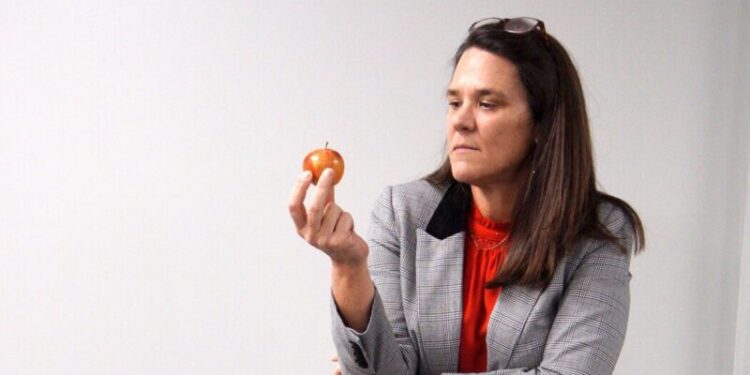This piece is one of 10 winners of our 2022 Profile Contest. You can find more here. Brynne Mittleider, the author, is 17 and goes to Holy Trinity Episcopal Academy in Melbourne, Fla.
An International Teacher on Showing Up for Life
by Brynne Mittleider
It was the American dream. They had a house in the suburbs. A minivan sat in the driveway. Their son was in nursery school. But despite each of them working 12 hours a day, she and her husband were drowning in debt. She told herself, “There’s got to be a better way than this.”
On a visit to her husband’s old high school in Argentina, she found it. In six months, the house, the car and the suburban dream were gone. Her solution? To teach abroad.
For 20 years, Carinn Mariani taught thousands of students spanning three countries. In every culture she experienced — be it the open-air community atmosphere in Buenos Aires; the new Vegas-like intensity in Dubai, United Arab Emirates; or the joie de vivre spirit of liberation in São Paulo, Brazil — she embraced the thought that “every day we make a choice about how we want to live. Craft your life however you want it. To settle otherwise is a waste of a life.”
Since then, Ms. Mariani has transitioned to teaching private school students in Brevard County, Fla. She reflects on her experience in and out of the international teaching world, especially her time in Dubai, in this interview, which has been edited and condensed.
When did you decide that you wanted to go into teaching?
Teaching wasn’t something I planned to do. When I studied literature in college, I never asked myself what I was going to do with it. In my early 20s, I was bartending, sneaking into the 1996 Olympics, quite directionless. When I decided to go into a teaching program, it was organic. Generally, that is how things work out. You stumble upon something, say, “That’s a good idea. I’ll pursue that and see if I like it.” I appreciate that a lot of life is luck. It’s showing up. Being present.
You seem very influenced by Dubai. Why did it affect you?
I loved the graciousness in my Emirati students and their parents, with being invited to their homes. It was something I never experienced in the United States. We don’t perhaps build community as a cornerstone of our society like some other cultures do.
The politics of Dubai went against my base instincts. I believe in democracy, female autonomy and not politicizing the expression of identity. I had to accept that I’d chosen to live in a culture where my values might not align, but it didn’t mean that I couldn’t be in a classroom full of students and show them the kindness and compassion, and more, that supported my value system.
How did it feel to experience so many cultural shifts as you moved?
There’s so much growth that occurs in every place that you live because of those cultural differences. There is no doubt that a piece of you breaks off when you leave. But, listen: students are the same, from the ultraprogressive girl in São Paulo to the covered, Muslim Saudi girls in Dubai to the students I have now who are going through the debutante process. There are few interactions that are different. There are little cultural things I have to think about because I respect where I live. But I talk to them the same way.
Do you expect to teach internationally again?
Now that I’ve had the professional positions I’ve wanted and lived the places I’ve wanted, I don’t know that I need that frenetic life as much anymore. Now, the tiny yoga studio up the street, and the beach across from it, are maybe all I need.
Is there anything else you’d like to pass on?
Most of my generation, when we were 17, didn’t see ourselves as global citizens. Your generation has this great potential because of this little box of world knowledge you have in your hand. The problem is, you have to harness all of this sensory information that’s flooding you from screens to find the path that is calm and quiet. Hopefully, a teacher’s job is to teach you how to get rid of all the noise and find exactly what you’re looking for.




















